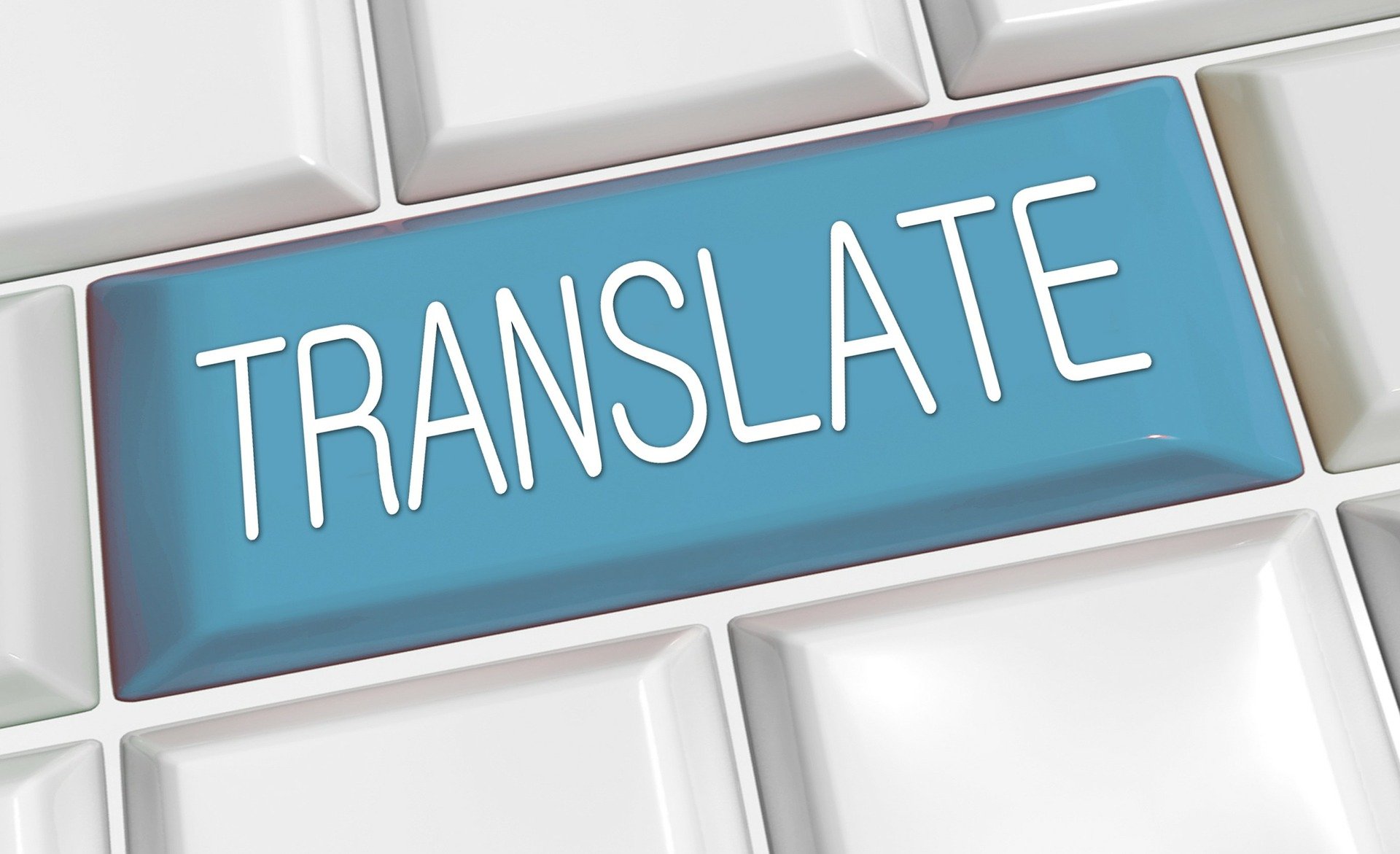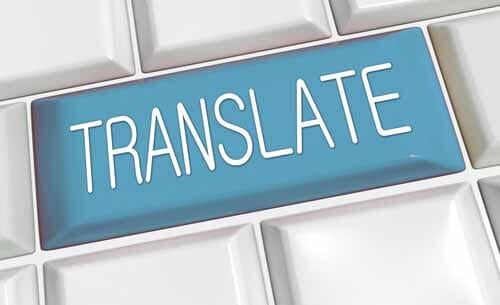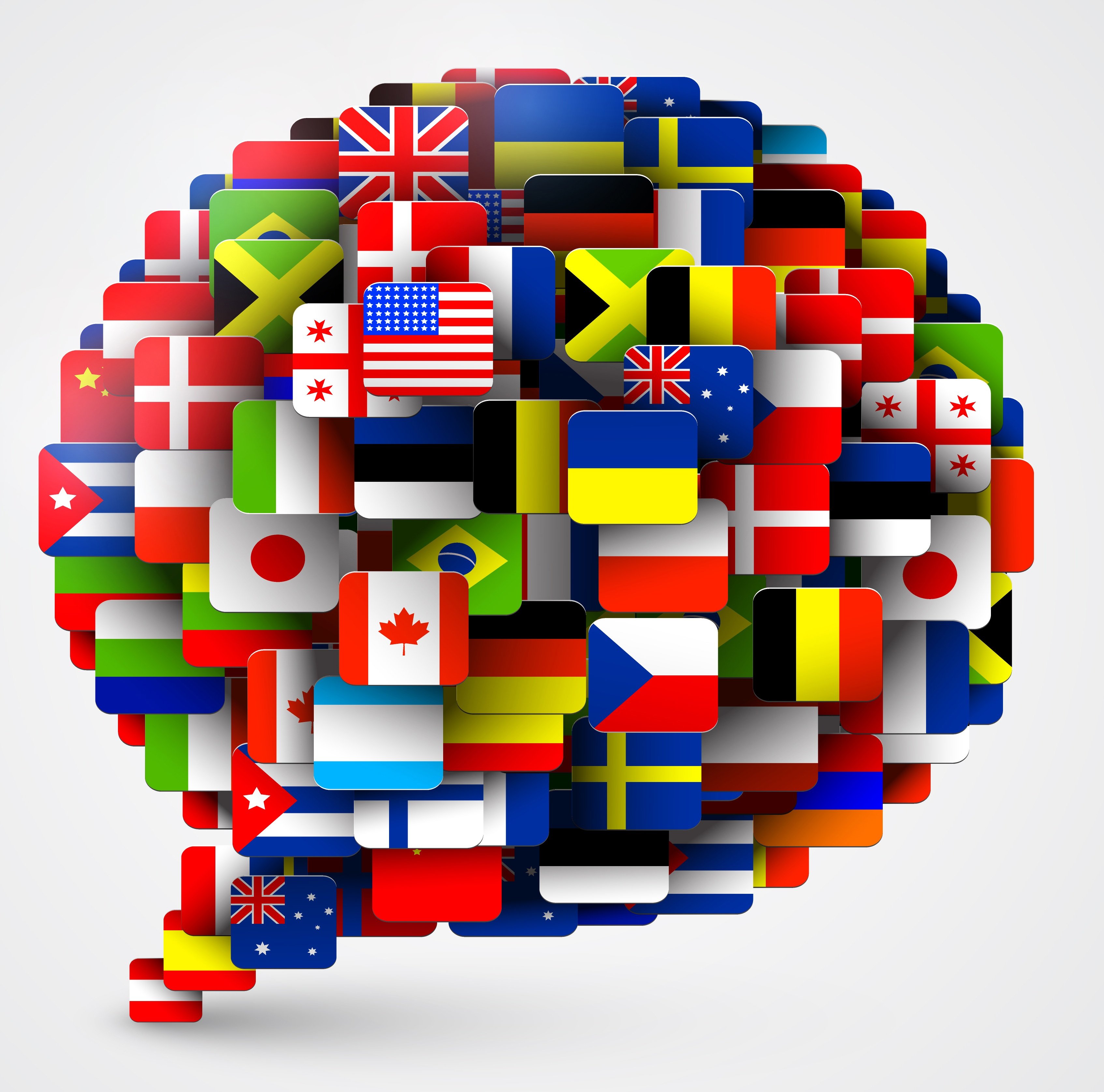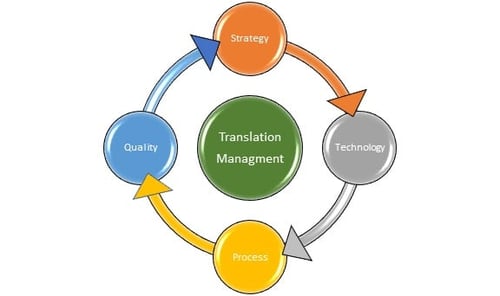Listen to Audio Version:
 When doing translations for your business, you could encounter many issues or mistakes. Here are the top ten we’ve discovered that we can help you avoid.
When doing translations for your business, you could encounter many issues or mistakes. Here are the top ten we’ve discovered that we can help you avoid.
#10 - Using the Google plugin on your site.
Although this is what many websites are doing, it is actually not a good way to meet accessibility requirements or capture the market you want. Also, they are often placing this tool on the very bottom of their web page and are not translating the names of the languages. This is not a good practice. Imagine, I speak English and I visit a site that is written in Chinese. First, I have to know that I should look for the Google plugin, then scroll all the way to the end of the homepage, and finally I have to figure out which option is ‘English’ because it’s written in Chinese characters. This is not a good user experience and can cause frustration for your visitors.
Our advice: don’t use Google plugin on your site.
To learn more about the problems with the Google Translate plugin, read our blog Why NOT to Use the Google Translate Plug-In on Your Website.
#9 - Poorly written English content.
When your materials are not well-written in English it causes a huge problem for translators. Using things like dangling participles, incomplete sentences and incorrect punctuation can change the actual meaning of what you are trying to convey. Also, if you're making edits to the copy after you have given it to the translator, it is extremely difficult for project managers and translators because they don’t know the original copy meaning.
Our advice: write clearly from the start and try to avoid making edits after submitting for translation.
Read our blog Good Translation Starts with Good Writing to learn more about Global English writing.
#8 - Not having a translation management plan.
Before you even start translating you should know how it fits in with the company's strategy and how it aligns with your multilingual strategy because they go together. Then you need to look at your process, the technology, and the quality that you need for a particular project. This helps define and provide a process around everything you're doing for translation.
Our advice: before you start, be sure to think through your plan for translation management.
Learn more about Translation Management Plans.
#7 - Inconsistent use of translators.
If you send your translation out to Jose one day, Maria another day, and Juan another day they will all be slightly different because we all have individual word choices and style preferences. For example, I may say ‘dinner’ and you may say ‘supper’, because in the United States they have the same meaning. Plus, the more one person translates for you, the more that person will get to know your company and the material and become better and more consistent at translating your materials.
Our advice: if you find a good translator stick with them and make sure your agency is picking out the right person for your job.
|
#6 - Misunderstandings about the specific use of your translations.
We got a request to edit someone’s French translation. The company was trying to do some marketing in Canada, but when they released the material in Canada, someone said it was a really poor translation. We looked at it and immediately understood that whoever did the original translation was from Haiti and speaks Haitian Creole French, which is very different from Canadian French. We were able to fix it for them. Had their original direction been clear they could have avoided the mistake.
Our advice: Be clear about your intended use for the translation from the start.
#5 - Missing the Spanish Market in the United States.
Did you know the Spanish-speaking market in the United States is the second largest Spanish-speaking market in the world? It's only second to Mexico. It's bigger than all the other Spanish-speaking markets around, including Argentina and Spain. There is huge potential right here without leaving the U.S. borders. To see what other companies are doing go watch some Spanish TV. On Telemundo you can see many major U.S.-based advertisers are promoting their products and services to the Spanish-speaking market.
Our advice: think about your community and what you sell, and make sure you're not missing out on the opportunity right at your doorstep.
Read more in our blog Fuel Sales Growth by Marketing to Spanish Speakers in the US.
#4 - Trying to enter too many markets or languages at once.
Some companies make the mistake of trying to target multiple new markets and languages all at once. This can get messy and cause confusion and potential issues. Make it part of your strategic objectives to figure out where you're going to target first and come up with a strategy. Go back to your translation management plan that you developed. Figure out a process and once you’ve put the process in place and defined, a. what materials you're going to translate, b. for what uses, and c. what qualities they need to have, then you can duplicate it and roll it out in other languages.
Our advice: start with one language, it will be easier to manage the others down the line.
#3 - No corporate strategy or buy-in for translation.
There could come a time where somebody asks why you are spending all this money on translation. Rather than looking at translations as an expense, smart companies see it as an investment. They’re actually using tracking methods, now available in marketing, to see where the business is coming from and the return on having something translated. This is often how accidental exporters are observing traffic and getting started in new markets. They see that business is coming in from, say, Germany so they try a landing page in that language to see the impact on requests.
Our advice: get executive buy-in and make sure translations align with your corporate strategy.
Read our blog Expanding into Multilingual Markets Requires a Strategy to learn more about creating a strategy.
#2 - Shopping on price.
Looking at industry research and our own studies, we were surprised to see some of the games vendors play to get your business. For instance, they provide a low price-per-word quote for translations, but when the bill comes, you see add-on costs for proofreading, project management, quality control, and more. All of that should come as a packaged cost. Our price-per-word is higher than some competitors and lower than others, but there are no surprises from us because our cost is fully loaded and covers all of the extra items some vendors list separately just so they can appear to offer the lowest cost when you search for them online.
Also, with cost comparisons, you may not be comparing apples to apples. For example, are both companies quoting on the same word count, or are they both aware of layout considerations, etc.
Our advice: make sure you're very clear on what the total inclusion cost is going to be before you select a translator.
Learn more about how we price for translation in our blog How Much Does a Translation Cost.
#1 - Not translating at all.
This is the number one mistake. We have heard again and again “English is the global language, so we don't need to translate.” Well, if you look at the statistics, people are more apt to buy and pay more for products where the website, advertisements, materials or packaging is written in their own language. So, if you are someone who thinks you don’t need to translate because English is the global language, you're getting way behind the times and you're not fully understanding the value of translation.
Our advice: JUST DO IT!
Contact us and we'll help you get started!
 If you have questions, feedback, or an issue you’ve run into with your translations, let me know. I would love to hear your comments below.
If you have questions, feedback, or an issue you’ve run into with your translations, let me know. I would love to hear your comments below.
Rapport International specializes in multilingual communications, providing language translation and interpretation services that are accurate and culturally appropriate. We use the right voice and the correct terminology to avoid liability, customize services to your needs, and deliver on time and within your budget. With our 100% satisfaction guarantee, you can trust that it’s done right. Contact us today if you would like more information or to get a free quote.
Rapport International specializes in multilingual communications, providing language translation and interpretation services that are accurate and culturally appropriate. We use the right voice and the correct terminology to avoid liability, customize services to your needs, and deliver on time and within your budget. With our 100% satisfaction guarantee, you can trust that it’s done right. Contact us today if you would like more information or to get a free quote.
Popular Posts
Popular industry news, interviews, technologies, and resources.





















